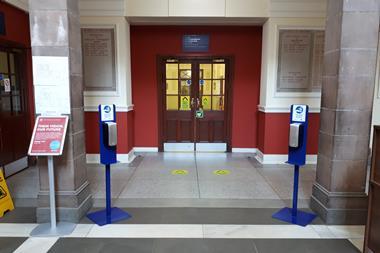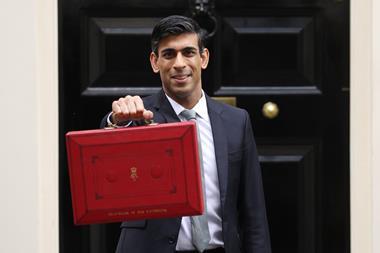Science organisations have welcomed a government roadmap that seeks to ‘revitalise’ research and innovation in the UK, and underlines its role in recovery from the pandemic. But they want to see its ambition translated into substance.
The document sets out the strengths and weaknesses of the current system and asks a series of questions about how to tackle them – including the perennial challenge of translating R&D excellence into commercial applications – as well as how the planned doubling of R&D investment to £22 billion a year by 2025, should best be spent. It promises a series of consultations ‘at pace’ with everyone from scientists to members of the public, and to work with devolved administrations to improve the regional presence of national R&D funders. The roadmap also acknowledges that government needs to reverse the decline in funding for long-term fundamental research, and to address training and retention of technical professionals.
Paul Nurse, director of the Francis Crick Institute, said that for the roadmap to ‘come to fruition, there needs to be a concerted government effort to change its rhetoric to be more welcoming, to fully embrace the future and think less about the past, and to engage the many young people and scientists who were overwhelmingly against Brexit and are essential for the future of our country.’
Unsurprisingly ‘you’ve got a very strong post Covid wash over the whole thing, but from a research system perspective, there are some positive lessons to draw from the way in which [it] has mobilised itself – the rapid collaborations, rapid innovations in areas like vaccines. There’s a sense in which, what can we learn from this, that could be applied elsewhere?’ says James Wilsdon, professor of research policy at the University of Sheffield.
While £300 million will be brought forward to upgrade infrastructure in research institutes and universities, there’s a question of how much of the extra overall funding will end up being channelled through universities, says Wilsdon. ‘You’ve got a government that’s pro-science, pro-research, wants to spend more. It’s indifferent – verging on hostile – towards universities. But we have a public R&D system which is primarily delivered through the university system … an operational tension as I would see it’.
The government also announced last week a package of further measures to support universities. Previous measures fell short of those called for by higher education organisations. Research universities hit by the pandemic will be eligible for low-interest loans that cover 80% of losses resulting from any drop in international students numbers. Around £200 million will also be released to pay researchers’ salaries, and fund lab and fieldwork costs.
Wilsdon points out that going from £11 billion a year to £22 billion – is a huge jump. ‘Just getting that money out the door is a challenge enough with the existing structures, but they not only want to do that, but they also want to invent all these new structures’. This includes a UK version of the US Advanced Research Projects Agency, which the prime minister announced this week would be launched in the summer. The plan is to spend £200 million in its first year of operation.
The government will also launch an Office for Talent, to take a ‘new and proactive approach’ to attracting and retaining the best minds in science and innovation. Martin Smith, policy and advocacy manager at Wellcome, tweeted that having the unit based in Number 10 is ‘useful because in the past there’s been serious incoherence in policy between departments, with eg immigration rules working against policies to support international collaboration’.

















No comments yet